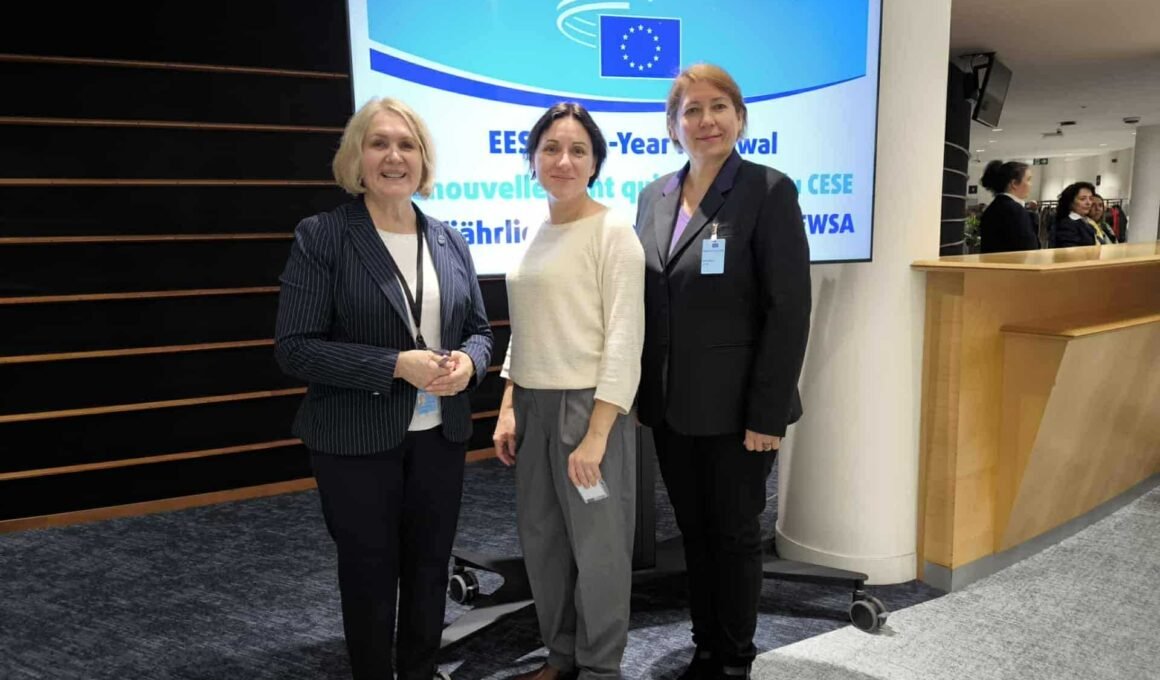On October 21–23, 2025, the inaugural plenary session of the European Economic and Social Committee (EESC) takes place at the European Parliament in Brussels, marking the beginning of the Committee’s seventeenth term. This is the Committee’s 600th plenary session.
During the first day’s session, the agenda was adopted, decisions were announced regarding the formation of groups and sections, the election committee, and other committee structures. Meetings were also held by the groups representing workers, employers, and non-governmental organizations.
Jurga Subačiūtė-Žemaitienė, Vice-President of the Lithuanian Industry Trade Union Federation, who represents the Workers’ Group in the Committee, was appointed as a member of three EESC sections: the Section for the Single Market, Production and Consumption (INT), the Section for Transport, Energy, Infrastructure and the Information Society (TEN), and the Section for Employment, Social Affairs and Citizenship (SOC).
On October 22, the plenary session elects the leadership of the EESC Bureau, including the President, Vice-Presidents, Section Presidents, and the President of the Consultative Commission on Industrial Change (CCMI).
The new EESC President is Séamus Boland, head of the Irish civil society organization Irish Rural Link. He is a long-standing member of the Committee and has been actively engaged in the civil society sector.
During his term, Mr. Boland aims to strengthen member engagement, promote equality and inclusion, support a just transition towards a sustainable economy, and defend democratic values against extremism.
Later, the Committee’s internal structures will be established, including the formation of committees such as Finance and Budget, Communication, and Audit. The Committee’s work programme and the schedule of future meetings will also be set.
On October 23, after the Committee’s structures are finalized, several important EESC opinions will be adopted, including:
on the revision of the EU Directive on carcinogens, mutagens and reprotoxic substances,
on chemical substances regulation, and
on state aid measures to support clean industry, among others.
The European Economic and Social Committee is a consultative body based in Brussels. Its main task is to issue opinions on draft EU legislation at the request of the Council of the European Union, the European Parliament, or the European Commission, or on its own initiative to draw EU institutions’ attention to key issues affecting civil society.
The EESC is composed of representatives of civil society from EU Member States. Its 350 members are appointed for a five-year term based on national candidate lists proposed by the Member States.






